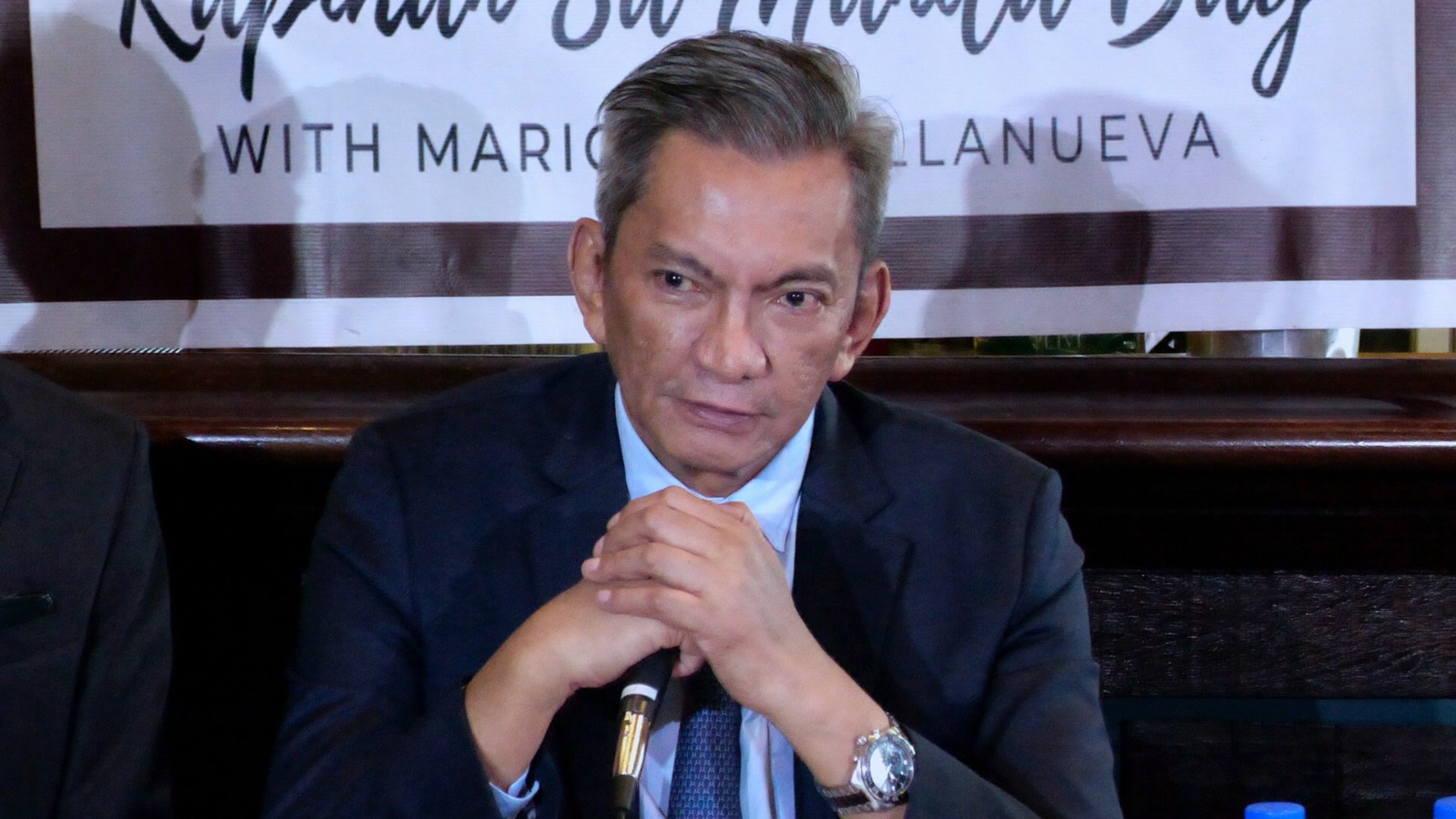Bicam OKs VAT on nonresident digital service providers – Salceda

Albay 2nd District Rep. Joey Salceda at the Kapihan sa Manila Bay. INQUIRER FILE PHOTO
MANILA, Philippines — A proposed value added tax (VAT) on nonresident digital service providers has been approved by the bicameral conference committee tackling it, Albay 2nd District Rep. Joey Salceda said on Thursday.
Salceda in a statement said that the joint version was approved after both contingents from the House of Representatives and the Senate have reached a consensus on two unsettled issues – the withholding tax on percentage taxpayers as proposed by the Department of Finance, and the earmarking of funds for the local creatives sector.
“The bicam quickly agreed on two remaining items. On withholding taxes for percentage taxpayers, we agreed with the DOF proposal, which will allow the Secretary of Finance to set withholding tax rates for those who are not VAT-covered,” Salceda said.
“We obtained assurances that small taxpayers will not be subject to excessive audits or complicated compliance,” Salceda added.
According to the lawmaker, who heads the House committee on ways and means, protections for small businesses are still in place. Also, the Salceda said the earmarking of five percent of incremental revenues, or around P900 million, to the creatives sector, was agreed upon.
Article continues after this advertisement“What the DOF proposal simply does is instead of paying their percentage taxes at the end of the year, the taxes will be withheld by the e-commerce site,” he noted.
Article continues after this advertisement“We also negotiated with the Department of Finance to keep the earmarking provision in the House version. My counterparts in the Senate also agreed to the earmarking,” he added.
It was last August 2022 — barely two months after the 19th Congress started its session — that the bill proposing digital taxes was approved by Salceda’s committee.
If enacted, it would amend the National Internal Revenue Code of 1997 to allow the imposition of VAT on digital or electronic transactions and services.
For this edition, VAT would primarily be collected from companies providing services in the Philippines but are not based in the country, including social media sites like Facebook and Instagram and streaming services like Spotify, Netflix, and other online sites.
However, questions were raised by opposition lawmakers like Gabriela party-list Rep. Arlene Brosas, who was worried about foreign companies passing on additional taxes to consumers and double taxation on local firms.
During the hearing in 2022, Brosas also raised fears that the higher taxes imposed on foreign companies would only be passed on to consumers.
READ: Bill to tax digital transactions gets House panel’s nod
Salceda on Thursday however reiterated that there is a need to tax foreign companies giving digital services in the Philippines, as local creative industry players pay their VAT.
“Taxes on imported goods help level the playing field. And taxes on imported goods are typically earmarked for domestic support,” he said.
“But during the pandemic, at the peak of the displacement of traditional goods by digital services, we allowed foreign digital service providers unfettered and untaxed access to the Philippine market. While resident content producers were subject to VAT and income taxes, foreign service providers were not,” he added.
This, Salceda said, created an unfair situation.
“This unfairness to the domestic sector for at least four years is why the House contingent believes that we owe the resident creatives sector some measure of compensation and support,” he noted.
The proposal to tax digital services, however, is not new. In 2020, during the 18th Congress and the height of the COVID-19 pandemic-induced lockdowns, Salceda drew flak for proposing that digital services like Netflix be taxed. Netizens claimed that these forms of entertainment were crucial during the lockdowns.
READ: Salceda wants additional tax on digital services like Netflix, Lazada, FB ads
Then Bayan Muna lawmaker Carlos Zarate warned that such proposals would only hit the poor and the middle class as they found new sources of entertainment after the shutdown of media giant ABS-CBN.